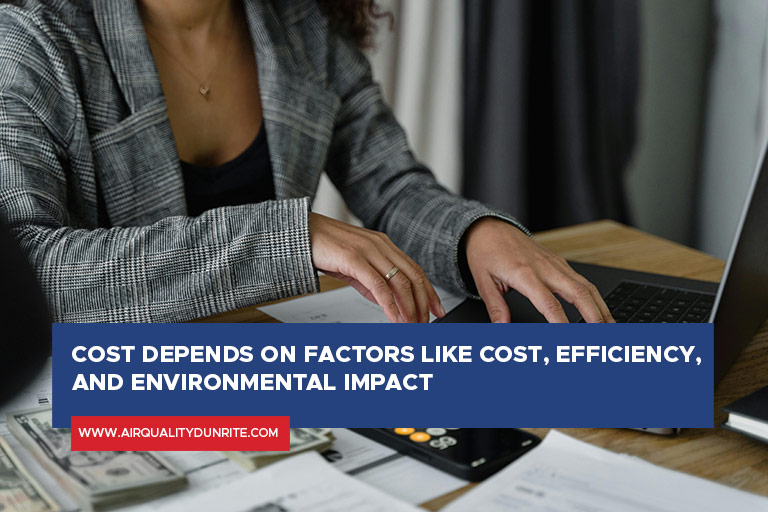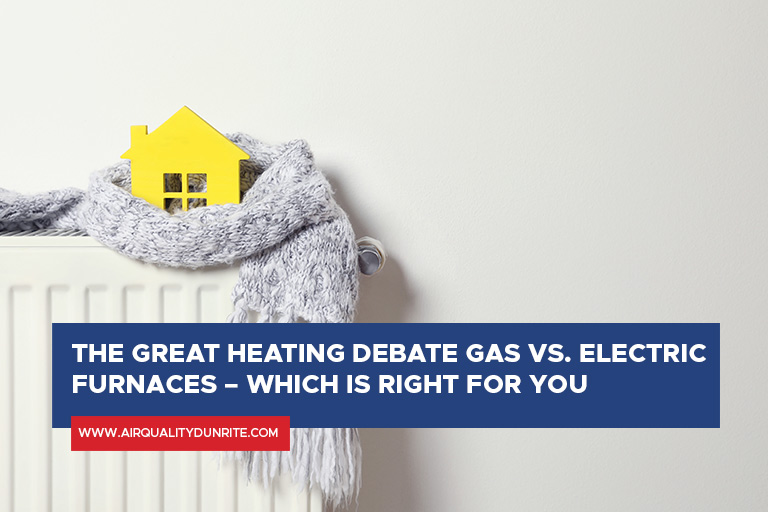Deciding between a gas and an electric furnace is a significant decision for homeowners, especially those in climates experiencing harsh winters. This choice not only affects your home’s comfort but also impacts your wallet and the environment. With heating systems being a central component of Canadian homes, selecting the right type of furnace is crucial. This article will explore the critical factors of costs, efficiency, and environmental impact to help you make an informed decision on whether a gas or electric furnace suits your needs best.
Factors to Consider When Choosing a Furnace

Costs
Initial Investment and Installation
-
Gas Furnaces
Generally, gas furnaces have a higher initial purchase and installation cost compared to electric models. This is partly due to the complexity of installation, which may require extensive ductwork and gas line installation.
-
Electric Furnaces
Electric furnaces are typically less expensive upfront. They are also easier and cheaper to install, mainly if your home already has the necessary electrical infrastructure.
Operating Costs
-
Gas Furnaces
The operating cost of gas furnaces tends to be lower than that of electric furnaces, mainly due to the lower cost of natural gas compared to electricity in many areas. However, fluctuations in gas prices can affect these costs.
-
Electric Furnaces
Although electric furnaces are more expensive to operate due to higher electricity rates, their efficiency rates can mitigate some of these costs. They convert almost all their energy into heat, leading to less waste.
Efficiency
Performance in Extreme Temperatures
-
Gas Furnaces
Gas furnaces can produce higher temperatures compared to electric models, making them ideal for regions that experience severe cold.
-
Electric Furnaces
While electric furnaces are highly efficient, their performance can diminish in extremely cold climates, as they may struggle to maintain optimal heat output.
Energy Efficiency
-
Gas Furnaces
Modern gas furnaces can achieve efficiency levels of up to 98%, meaning they convert almost all the fuel to heat. However, their efficiency can decrease over time due to wear and tear.
-
Electric Furnaces:
Electric furnaces boast nearly 100% efficiency rates since they convert all the electrical energy into heat. Their efficiency remains consistent throughout their lifespan.
Environmental Impact
Emissions
-
Gas Furnaces
Gas furnaces emit carbon dioxide and other greenhouse gases, contributing to air pollution and climate change. The extent of the impact depends on the furnace’s efficiency and the cleanliness of the gas source.
-
Electric Furnaces
Electric furnaces themselves do not emit greenhouse gases at the point of use. However, the environmental impact largely depends on how the electricity is generated. If the electricity comes from renewable sources, the impact is minimal, but if it’s generated from fossil fuels, the indirect emissions can be significant.
Renewable Energy Compatibility
-
Gas Furnaces
Currently, gas furnaces rely on non-renewable natural gas, making them less compatible with green energy initiatives.
-
Electric Furnaces
Electric furnaces can seamlessly integrate with renewable energy sources, such as solar or wind power, making them a more sustainable option as the grid becomes greener.
How to Choose What’s Right for You

Selecting the right heating system for your home involves more than just comparing costs and efficiencies. It requires a holistic view of your home’s needs, environmental considerations, and future energy trends. Here are several factors to consider to help you make a well-informed decision:
-
Assess Your Climate
The effectiveness of your heating system is heavily dependent on your local climate. Gas furnaces are often preferred in colder regions due to their ability to produce higher heat levels efficiently. In contrast, electric furnaces or heat pumps might be more suitable for areas with milder winters, as they can provide efficient heating without the intense output that gas furnaces offer.
-
Evaluate Energy Costs
Energy prices vary widely by location and over time. In areas where electricity is cheaper or rates for natural gas are particularly high, electric furnaces might be the more cost-effective option in the long run. Conversely, if natural gas is more affordable and readily available in your area, a gas furnace could be more economical.
-
Consider Installation Requirements
The cost and feasibility of installing a new heating system can significantly influence your choice. Electric furnaces require less complex installation processes, making them ideal for homes without existing gas lines. However, if your home is already set up for gas, upgrading to a more efficient gas furnace might be simpler and less expensive.
-
Think About the Environmental Impact
If reducing your carbon footprint is a priority, consider the source of your electricity. In regions where the electrical grid is powered by renewable resources, electric furnaces and heat pumps offer a cleaner alternative to gas furnaces. For those where electricity generation relies heavily on fossil fuels, the environmental benefits may be less clear-cut.
-
Plan for the Future
Investing in a heating system is a long-term commitment. Consider future trends in energy prices and potential regulations on emissions that might affect your decision. Additionally, technological advancements, such as improvements in heat pump efficiency or the development of greener electricity, could influence which system is more sustainable in the long run.
-
Maintenance and Upkeep
Regular maintenance is crucial for any heating system’s efficiency and longevity. Whether you choose a gas or electric furnace, scheduling a furnace tune-up and repair is essential to keep your system running smoothly and efficiently. It’s also wise to consider the availability and cost of maintenance services in your area.
If you’re still unsure which heating system is right for your Toronto home, or if you need repairs for your current system, consider reaching out to Air Quality Dunrite. With expert knowledge in both gas and electric systems, including Toronto heat pump and furnace repair, Air Quality Dunrite can help you navigate your options and ensure your home remains warm and comfortable. Contact us today at (416) 342-1939 to discuss your heating needs and explore the best solutions for your home.



